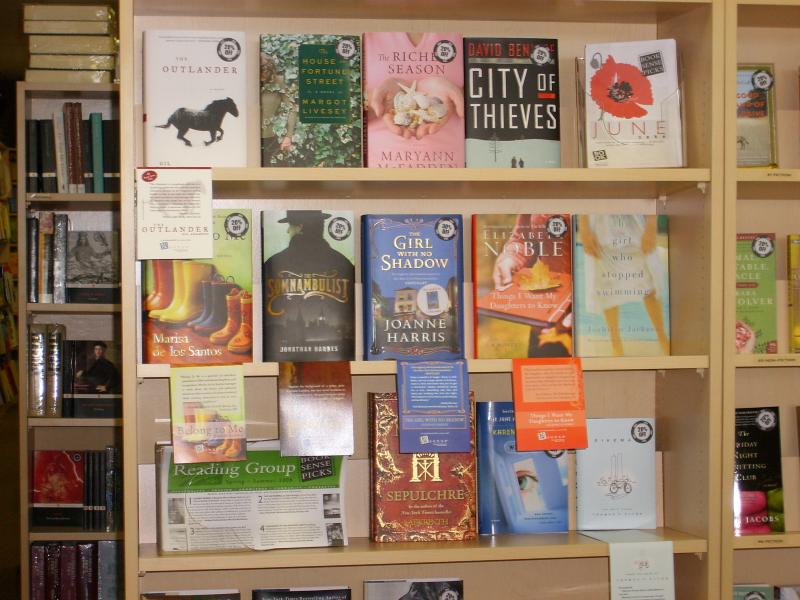I’ve loaded up Kindle for a forthcoming trip. I was checking my purchases. Crime. Thriller. Short fiction. All lovely.
I was intrigued by one of my books, and opened it up. Grrrrr!
In the first sentence, the author used the words mouthful, mouth and handful. It was clumsy. Amateurish! Abort! Delete!
Out of interest, I checked another book. Grrrrrr! Again!
First two sentences: “The woman stood in the middle of the bank atrium. She stood there …”
Aaarrrggghhh! Clumsy! Abort! Delete!
Why don’t people check their writing? Are they blind to it? Have they given it to their partner, parent, in-laws, and they were too scared to criticise?
Put yourself in the shoes of a book buyer. Be it from a bricks-and-mortar shop (other building materials are available), or from an online store. For the sake of imagery, let’s walk into a nice bookshop. Usually, there’s a presentation bookcase straight in front of you when you walk in. Let’s call it “New Releases”. And it even has a special cardboard point-of-sale star attached to it: “Special Offers”. No, I don’t know why they feel the need to Capitalise Every Word Either. I digress.
So you approach the shelves, and you’re in browse mode. You might see some famous names presented there, but you fancy something different, something new for a change.
Oo look, there’s a new writer. Hieronymus Postlethwaite, with his latest release: “Syphoning the Snake”. Sounds intriguing, doesn’t it. Should you buy? Should you not? What are you going to do?
Obviously, unless you’ve been living under a rock since you were old enough to walk, you’re going to pick the book up. If you’re like me, you turn it over to read the back cover. There’s blurbs from other, more famous authors, but mostly they’ve been paid to say nice things about other authors from the same publisher.
There’s a summary. “Phileas B. Pendlestone never knew what it felt like to be loved. From a baby, kidnapped from his pushchair by a pack of wild kangaroos on an outing from the local zoo, he lived in a cave for 16 years. Whilst working for the government on a top-secret mission, he falls in love with a beautiful Russian agent. But on a trip back home, his childhood sweetheart uncovers a truth that forces him to make a decision. Should he ….” (etc etc).
Sounds pretty damned good to me. And I’ll bet it does to you, too. So what do you do then? Do you trot off to the cashier, credit card in hand?
No, of course you don’t.
You open the book. You read the first paragraph. Maybe two.
And there, kind readers, is the crux of this post. Prospective purchasers will read the first paragraph or two, or a page. That is the point at which they’re deciding to buy the book, or put it back on the shelf.
So what should a novelist do, in those first few paragraphs? Hmm? Do I really need to spell it out?
You make those first few paragraphs the best damned paragraphs in the whole book. IN. THE. WHOLE. BOOK. Because within those paragraphs lie the secret to the sale.
Online, it’s the same thing. The Big Gun, Amazon, give you a “Click to LOOK INSIDE!” feature. They seem to think it’s pretty important for people to be able to have a squint at what you’re on about. Or you can download a sample. Same thing.
Okay, you say. I get it, you say. I need to have someone check it, you say. So you give it to your mom.
NO!
Your mom (mum if she’s in the UK) is probably very nice, and brought you into this world, or at least, brought you up. What’s she going to say? Is she qualified to judge writing? Is she published? Or, maybe you give it to your best mate at work. What’s he/she going to say? “Yeah, it’s great.”
No no no no.
Find another writer. Come on, it’s not difficult. These days of social media everywhere, you can surely find someone, online, who’s another writer, and preferably writing in your chosen genre. Say hi to them. Create an online friendship. Ask them to read your book.
No no no no.
Authors are busy people. If they’re not, they’re no good. if a good author has free time, the last thing she’ll want to do is to spend a number of hours wading through your manuscript.
So my advice? Send them a small section. At the start. Take the first few hundred words of your story. Not too much, because they won’t read it. A paperback page is around 250 words, so make it around that. Bad writing can be detected (usually) within a paragraph.
Send them the extract, ask for honest opinion. Does it work as an opening section? Would a reader want to read on? Are there any ways it could be improved? Just that. Don’t send them a thirty page questionnaire. Just three questions.
If the feedback is good, proceed to Go, and collect £200 (if you’re lucky). If the feedback is bad, think about your writing. Is it really good enough to publish? Was the extract an aberration? Or was it typical of your writing? Don’t forget, “You can put lipstick on a pig, but it’s still a pig.”
 Edit: Hoist by my own petard! A friend pointed out that the first “I” was missing from this blog post. See what I mean? Read. It. Through. Okay, I will. Next time.
Edit: Hoist by my own petard! A friend pointed out that the first “I” was missing from this blog post. See what I mean? Read. It. Through. Okay, I will. Next time.

Were they indie authors?
I’ve seen similar stuff in work from well known writers who have, apparently, been edited! Lol
Xx
Yes, they were. And you’re right, Vikki, I think some authors get lazy or self-indulgent, and it seems like the editors are too scared to make major changes. I’ve read some rubbish traditionally-published books.